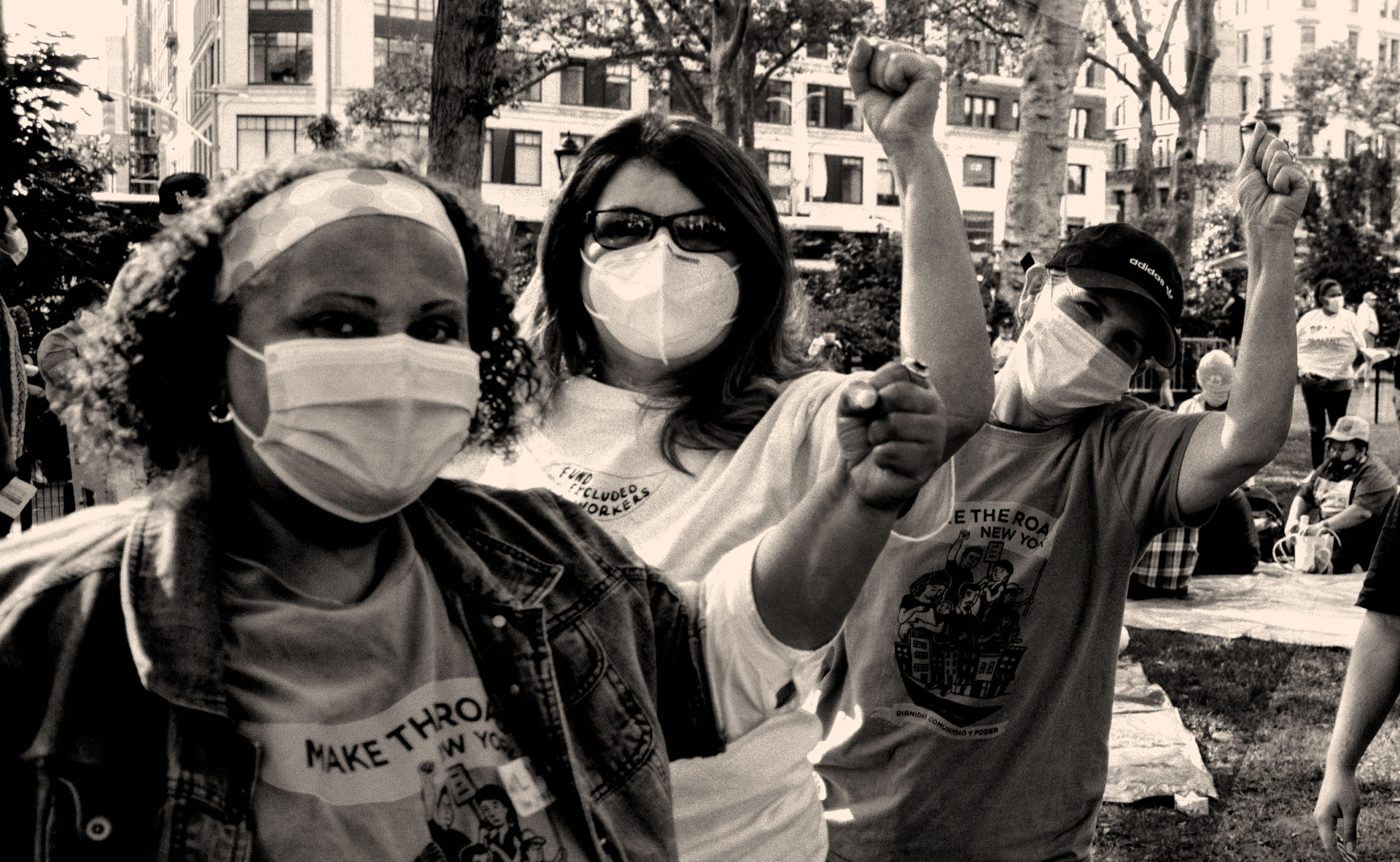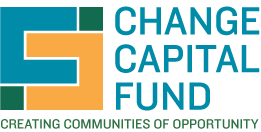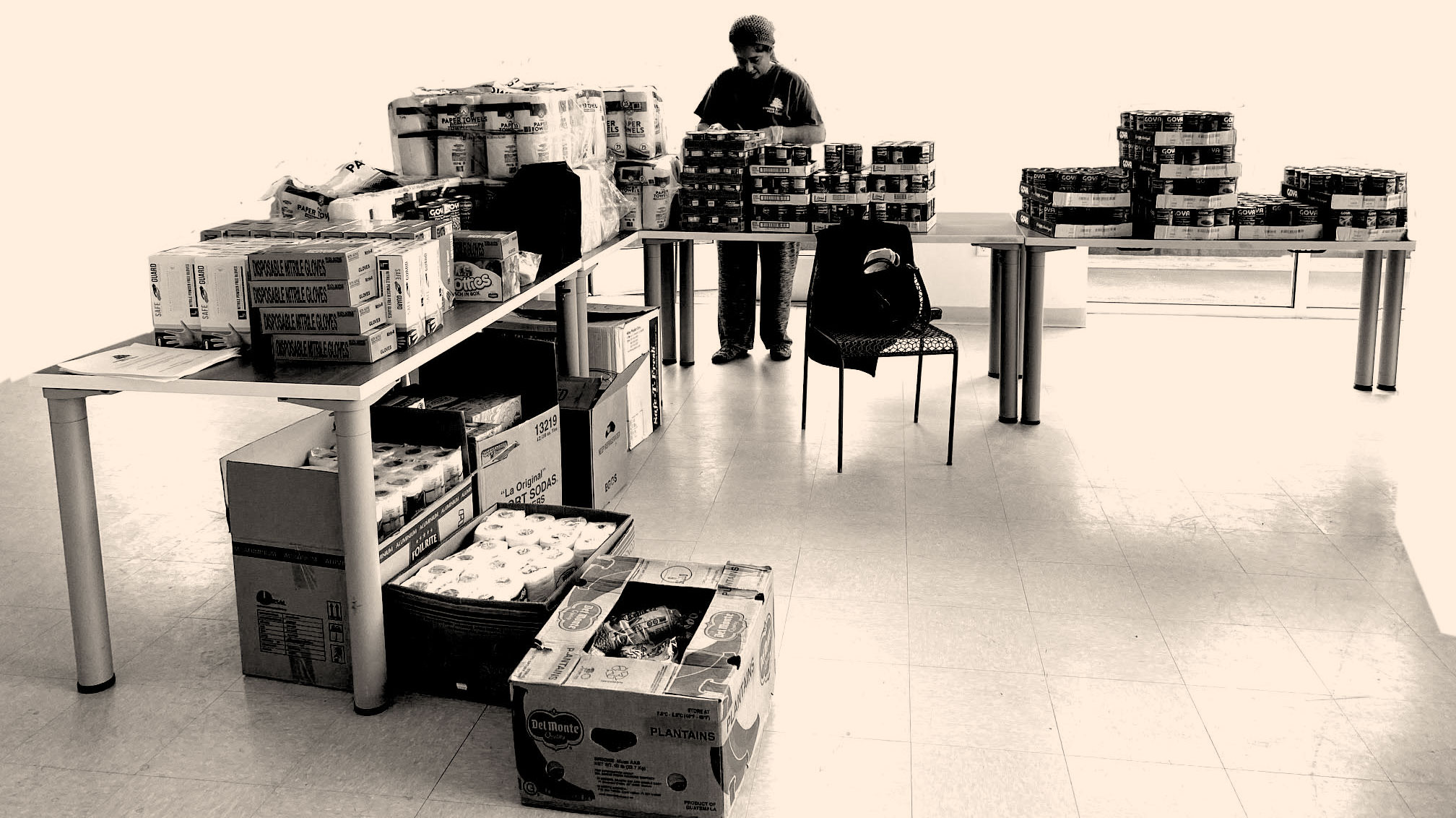Make the Road New York (MRNY) is New York City’s largest, community-based, membership organization, representing immigrants and working-class people of color from across the city. It has community centers in three neighborhoods: Bushwick, Brooklyn; Corona Queens; and, Port Richmond, Staten Island. Including its additional neighborhood sites in Westchester and Long Island, MRNY has 24,000 members. MRNY was established 24 years ago to organize with working class immigrants in Bushwick to demand justice on a range of issues; it has since grown to impact tens of thousands of people across the state. Its four-part strategy includes: legal services, leadership education, community organizing and policy innovation and advocacy.
The community centers in each of MRNY’s sites were always humming with energy prior to the pandemic, with smells of the chicken and rice cooking for the evening’s meeting, packed classrooms, colorful murals on the wall, and a buzz of purpose. When the pandemic hit, MRNY was readying to begin construction on a new center in Jackson Heights, Queens.
By spring 2020, many MRNY members had already been personally impacted by aggressive anti-immigrant policies and practices. This only intensified when MRNY’s members began getting sick and losing their jobs and incomes at disproportionately high rates. MRNY staff heard story after story of devastating loss compounded in many cases by limited English or lack of citizenship. In response, MRNY raised and distributed $4 million in the first six months to some 5,000 families, averaging $800 payments for people who did not qualify for government support. They continue to provide emergency food—produce, nonperishables, and frozen meals—to 1,000 families each week—using staff and volunteers at their office and via volunteer mutual aid and a bike brigade delivery system. They created a $100,000 In Memoriam fund to provide financial aid to families unable to afford burial and cremation costs for loved ones lost to COVID-19—accessed by over 50 families. MRNY lost over 80 members to the virus.
MRNY’s report, Excluded in the Epicenter, was among the first to call attention to the disparities of the impacts of COVID and the economic shutdown by race, ethnicity, immigration status and income. A follow-on survey found that 65% of respondents were out of work and of those working, nearly three quarters were earning less than they were pre-COVID. The report also documented that 90% of unemployed undocumented respondents had not received any public economic assistance.
To address this crisis, MRNY launched the Fund Excluded Workers campaign to demand government scale solutions to the massive crisis that was hitting our communities. The campaign culminated in a 23-day hunger strike led by their members. It was instrumental in persuading state legislators in Albany to create a first-of-its-kind $2.1 billion fund to provide financial aid to immigrants who lost income during the pandemic. Working in coalition with others, MRNY also helped ensure that emergency Medicaid covers the costs associated with COVID-19 testing and treatment for immigrants on emergency Medicaid, helped win a state-level moratorium on evictions to protect tenants, legalization of e-bikes to protect delivery workers, and introduction of essential worker protections by the New York City Council. The Protect Our Courts Act—a major campaign for MRNY—was passed into law to keep ICE out of New York’s courts enabling immigrants to show up for civil suits such as child support, domestic violence without fear that they will be arrested, advancing their ambitious 2021 platform.
For a fuller accounting of MRNY’s emergency response and the impact COVID-19 has had on their community, see their three excellent reports:
- Meeting the Moment: Make the Road New York in the COVID-19 Era
- Excluded in the Epicenter—May 2020 report with Hester Street
- 150 Days Later: Unemployed and Excluded—August 2020 follow-up report with Hester Street
CCF funding has enabled Make the Road NY to create a new position, Director of Data and Research, and to create an organization-wide database system. When MRNY launched their emergency financial assistance program, the data system helped them create eligibility criteria that matched the need. They also created a new attendance system, moving from paper sign-ins to a text-based system that allows participants to immediately register their attendance and complete intake information.


